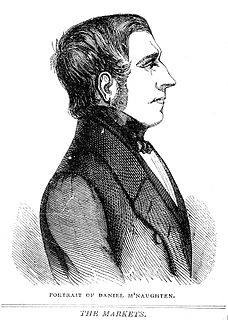| Wills, trusts and estates |
|---|
 |
| Part of the common law series |
| Wills |
Sections Property disposition |
| Trusts |
Common types Other types
Governing doctrines |
| Estate administration |
| Related topics |
| Other common law areas |
Insane delusion is the legal term of art in the common law tradition used to describe a false conception of reality that a testator of a will adheres to against all reason and evidence to the contrary. A will made by a testator suffering from an insane delusion that affects the provisions made in the will may fail in whole or in part. Only the portion of the will caused by the insane delusion fails, including potentially the entire will. Will contests often involve claims that the testator was suffering from an insane delusion.

Law is a system of rules that are created and enforced through social or governmental institutions to regulate behavior. It has been defined both as "the Science of Justice" and "the Art of Justice". Law is a system that regulates and ensures that individuals or a community adhere to the will of the state. State-enforced laws can be made by a collective legislature or by a single legislator, resulting in statutes, by the executive through decrees and regulations, or established by judges through precedent, normally in common law jurisdictions. Private individuals can create legally binding contracts, including arbitration agreements that may elect to accept alternative arbitration to the normal court process. The formation of laws themselves may be influenced by a constitution, written or tacit, and the rights encoded therein. The law shapes politics, economics, history and society in various ways and serves as a mediator of relations between people.

In law, common law is that body of law derived from judicial decisions of courts and similar tribunals. The defining characteristic of “common law” is that it arises as precedent. In cases where the parties disagree on what the law is, a common law court looks to past precedential decisions of relevant courts, and synthesizes the principles of those past cases as applicable to the current facts. If a similar dispute has been resolved in the past, the court is usually bound to follow the reasoning used in the prior decision. If, however, the court finds that the current dispute is fundamentally distinct from all previous cases, and legislative statutes are either silent or ambiguous on the question, judges have the authority and duty to resolve the issue. The court states an opinion that gives reasons for the decision, and those reasons agglomerate with past decisions as precedent to bind future judges and litigants. Common law, as the body of law made by judges, stands in contrast to and on equal footing with statutes which are adopted through the legislative process, and regulations which are promulgated by the executive branch. Stare decisis, the principle that cases should be decided according to consistent principled rules so that similar facts will yield similar results, lies at the heart of all common law systems.

A testator is a person who has written and executed a last will and testament that is in effect at the time of his/her death. It is any "person who makes a will."
Contents
An insane delusion is distinct from testamentary capacity. A testator might be suffering from an insane delusion but otherwise possess the requisite capacity to make a will. Similarly, an insane delusion is distinct from a mere mistake. If suffering from an insane delusion, a testator is not subject to change his or her mind regarding the delusion if presented with contrary evidence, whereas a mistake is capable of being corrected if the testator is told the truth. Additionally, while an insane delusion may cause portions of a will to fail, most courts will not reform or invalidate a will because of a mistake unless it was the result of fraud. [1]

In the common law tradition, testamentary capacity is the legal term of art used to describe a person's legal and mental ability to make or alter a valid will. This concept has also been called sound mind and memory or disposing mind and memory.
In law, fraud is deliberate deception to secure unfair or unlawful gain, or to deprive a victim of a legal right. Fraud itself can be a civil wrong, a criminal wrong, or it may cause no loss of money, property or legal right but still be an element of another civil or criminal wrong. The purpose of fraud may be monetary gain or other benefits, such as obtaining a passport or travel document, driver's license or qualifying for a mortgage by way of false statements.




